A Goodreads friend gave this novel (the first book in the author’s Miss Fortune Mysteries) five stars, which put it on my radar; and I downloaded the e-book edition when I discovered that it’s offered for free, as a teaser for the series. While my rating isn’t as high as my friend’s, and I didn’t expect that it would be, I did turn out to like the book somewhat more than I expected to.
Our protagonist and first-person narrator here is “Fortune” Redding. We’re not told her real first name (“Fortune” is the handle she’s used to answering to, but it’s indicated, well into the book, that it’s a nickname, short for “soldier of fortune”) or her exact age; but she’s worked for the CIA for eight or five years, depending on which figure we go with, since we’re given both in different places. (I took the first one to start with, so picture her as about 30, joining the Company just after college.) The affiliation was a natural one for her; her father, with whom she had a prickly relationship, was a top CIA agent, and after his death when she was 15, her remaining teen years were overseen by a couple of CIA officials, one of whom is now her boss. (Her mother had died years earlier.) She’s a seasoned assassin (of verified baddies), with a VERY long list of kills to her credit, and zero compunctions about her line of work. But she’s neither a psychopath nor a moral nihilist; on the contrary, she’s basically a kindhearted person (albeit an emotionally-constipated loner with no confidential friends), who sympathizes readily with those in danger and distress.
 That trait got her in trouble on her latest mission. It wasn’t supposed to be a hit; she was simply posing as the glamorous mistress of a drug dealer, delivering money for him to a Middle Eastern crime boss. But (as we learn along with her, at the debriefing in the first chapter) her meeting was compromised by an unknown leak in the CIA, who’d tipped the bad guys off as to who she was. They’d decided to test the tip by setting up a situation where she’d have to act to try to rescue a 12-year-old sex trafficking victim, figuring that she could then easily be dealt with, since she’d come unarmed. Unhappily for them, Fortune’s quite adept at improvising a weapon when she has to; though she doesn’t care much for high heels, she dispatched the head honcho with a stiletto heel on the shoes she was wearing, and got away clean, presumably with the 12-year-old. (We learn about this only in a terse second-hand report; I’d have loved to read it in real time!) Now, the deceased’s brother Ahmad, also a big-time crime lord, has put her picture all over the Dark Web, with a million-dollar price on her head (ten million, if she can be delivered to him alive to be tortured).
That trait got her in trouble on her latest mission. It wasn’t supposed to be a hit; she was simply posing as the glamorous mistress of a drug dealer, delivering money for him to a Middle Eastern crime boss. But (as we learn along with her, at the debriefing in the first chapter) her meeting was compromised by an unknown leak in the CIA, who’d tipped the bad guys off as to who she was. They’d decided to test the tip by setting up a situation where she’d have to act to try to rescue a 12-year-old sex trafficking victim, figuring that she could then easily be dealt with, since she’d come unarmed. Unhappily for them, Fortune’s quite adept at improvising a weapon when she has to; though she doesn’t care much for high heels, she dispatched the head honcho with a stiletto heel on the shoes she was wearing, and got away clean, presumably with the 12-year-old. (We learn about this only in a terse second-hand report; I’d have loved to read it in real time!) Now, the deceased’s brother Ahmad, also a big-time crime lord, has put her picture all over the Dark Web, with a million-dollar price on her head (ten million, if she can be delivered to him alive to be tortured).
If Ahmad can be taken out, the contract on her will be moot, but in the meantime, she needs to be stashed in a safe place –and one that can’t be compromised by the unidentified leaker. Luckily, her boss’ niece, librarian and former beauty queen Sandy-Sue Morrow, just inherited a house in Sinful (population 253) in the bayou country of southern Louisiana from a newly-dead aunt on her mother’s side. The two weren’t close; Sandy-Sue has never been to Sinful, and she has no social media presence due to a stalking incident years ago. With summer just starting, she’s scheduled to go down there to inventory the house’s contents and prepare it for sale. Before the very unwilling Fortune can say “culture shock,” her boss has packed the real Sandy-Sue off for a summer in Europe, and our heroine is in route to Louisiana to hide under this new identity. It’s only supposed to be through the summer months; and in a small, quiet southern community, nothing’s apt to go wrong, right? But the flooding caused by a recent hurricane unearthed and moved a lot of debris in the backwoods, and on Fortune’s first evening in town, the late aunt’s dog fishes a human bone out of the bayou behind the house. It proves to have belonged to a very wealthy, and universally hated, town resident who disappeared some five years ago….
As mysteries go, this one is not deep or in some respects very plausible, but it is entertaining. Despite the author’s use of a humorous tone in most of it –though it has its serious moments, some of them deadly so (literally!)– it’s not really an example of the “cozy” subgenre, nor even of the broader stream of more “genteel” who-dunnits in general. That tradition features more actual detection in terms of sifting physical clues and witness statements, and eschews directly-described physical violence. There’s little of the former here, and definitely some of the latter in the denouement. (Action-heroine fans may be pleasantly surprised to find that Fortune’s combat skills won’t necessarily have to go to waste in this new environment!) But the mystery of who killed Harvey Chicoran doesn’t necessarily have an immediately obvious solution (many characters, and no doubt readers, may assume that the widow did it –but did she?). There will be twists and turns in solving it, and Fortune’s involvement in that effort will provide her –and readers– with challenges, adventures, excitement and danger.
A weakness of the book is that a lot of the humor exaggerates the quirkiness and peculiarities of the Louisiana bayou country’s rural inhabitants to the point of caricature. It plays to stereotypes that too many urbanites have about the South, and rural people in general, which reflects culpable ignorance of cultures outside their own. Fortune herself is a prime example; she seriously wonders, for instance, if the community she’s going to has electricity. (Rolls eyes profusely.) She also has a tendency to reduce women with Sandy-Sue’s background to despised, stereotyped “Others.” Some characters, like the members of the Sinful Ladies Society (membership is only open to “old maids” or widows of 10 years standing, to avoid contamination by “silly man thinking”), are steeped in misandry, and Deleon views that as funny. This is mitigated to a degree by the fact that she’s native to the region (which I’ve visited) herself, does reveal some basic affection for it, and depicts it with some realistic local color; and by the fact that she does portray a couple of male characters positively. There are also a few inconsistencies that should have been caught and edited out.
On the positive side, this is a tautly paced book that keeps you turning pages, or in my case clicking frames (I read the first two-thirds of it in one sitting, and could and would have read it all if time had allowed!), with a tightly-compressed plot that unfolds in less than a week. Even if you disagree with some of Fortune’s attitudes, she is honestly likable, with a wryly humorous narrative voice that’s appealing (at least to this reader). She exhibits a willingness to look at herself and grow through exposure to new experience, which I like; and I appreciated the strong depiction of female friendship and loyalty. There’s a certain amount of bad language here, mostly of the h and d-word sort or vulgarisms, but not much profanity and no obscenity; and there’s no sexual content nor any romance at all (though I understand that a romance develops in subsequent books in the series). While Fortune describes herself, though not out loud, as a “heathen” (when she’s informed that everybody in Sinful who’s not one of the latter attends one of its two churches), and some humor based on the foibles of the church-goers, there’s no actual pushing of an anti-Christian agenda.
I only read this book as a diversion, because it was free; I don’t plan to follow the series. But I don’t regret making Fortune’s acquaintance, nor visiting her in her new-found community. :-)
Author: Jana Deleon
Publisher: Self-publihed; available through Amazon, both for Kindle and as a print book.
A version of this review previously appeared on Goodreads.
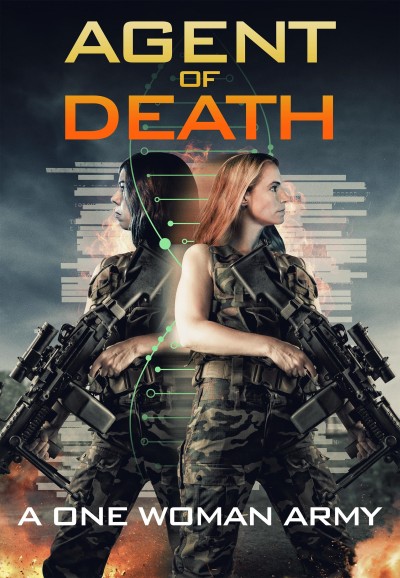 I quite liked the idea here, but the execution just wasn’t quite good enough to do justice to the concept. It feels like a matter of resources to some degree. But I also feel that a few tweaks to things would have paid significant dividends. The heroine is Tara Croydon (Fox), a CIA agent who experiences a crisis after an operation means she’s not around when her father passes away. In her depression, she signs up for a cutting-edge but rather dubious experimental project under the oversight of Hype (Medina). This involves her being given the ability to transform, physically, into one of fifteen different personas which have been implanted into her.
I quite liked the idea here, but the execution just wasn’t quite good enough to do justice to the concept. It feels like a matter of resources to some degree. But I also feel that a few tweaks to things would have paid significant dividends. The heroine is Tara Croydon (Fox), a CIA agent who experiences a crisis after an operation means she’s not around when her father passes away. In her depression, she signs up for a cutting-edge but rather dubious experimental project under the oversight of Hype (Medina). This involves her being given the ability to transform, physically, into one of fifteen different personas which have been implanted into her.




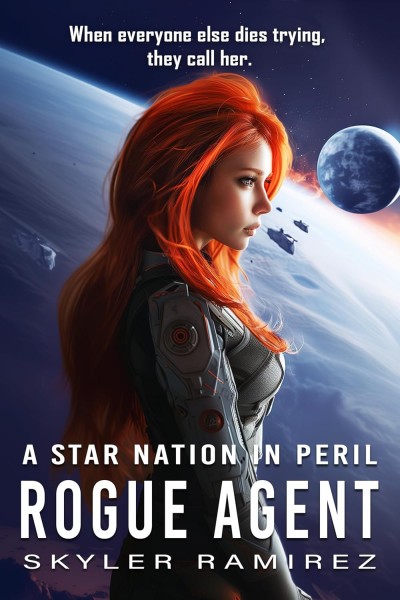 This is a solid, no-nonsense combination of spy and science-fiction. Though, to be honest, it is skewed towards the former genre, with the latter mostly window-dressing. It wouldn’t take much to change the setting from a solar system whose ownership is disputed by a couple of galactic empires, to a city whose ownership is disputed by a couple of countries. The planet is Hudson, claimed both by the Star Kingdom of Prometheus and the Koratan Confederacy. Heather Kilgore is among the best agents of the Promethean King’s Order, and is dispatched to Hudson after the suspicious death of a man who had betrayed the Kingdom, former commander Connor Monroe
This is a solid, no-nonsense combination of spy and science-fiction. Though, to be honest, it is skewed towards the former genre, with the latter mostly window-dressing. It wouldn’t take much to change the setting from a solar system whose ownership is disputed by a couple of galactic empires, to a city whose ownership is disputed by a couple of countries. The planet is Hudson, claimed both by the Star Kingdom of Prometheus and the Koratan Confederacy. Heather Kilgore is among the best agents of the Promethean King’s Order, and is dispatched to Hudson after the suspicious death of a man who had betrayed the Kingdom, former commander Connor Monroe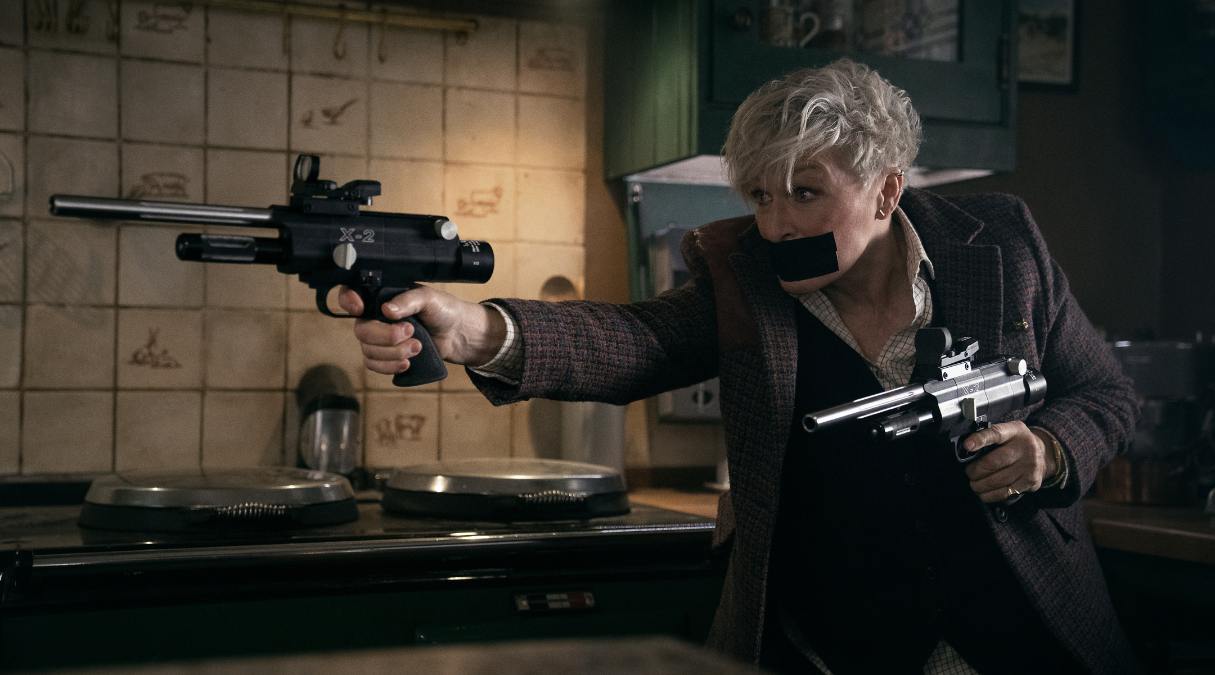 ★★★
★★★ This was my favourite new television show of 2024, and might have been my pick overall. It’s a very strong mix of action and drama, with a fabulous cast of characters. I think I might have to go back to the first season of
This was my favourite new television show of 2024, and might have been my pick overall. It’s a very strong mix of action and drama, with a fabulous cast of characters. I think I might have to go back to the first season of 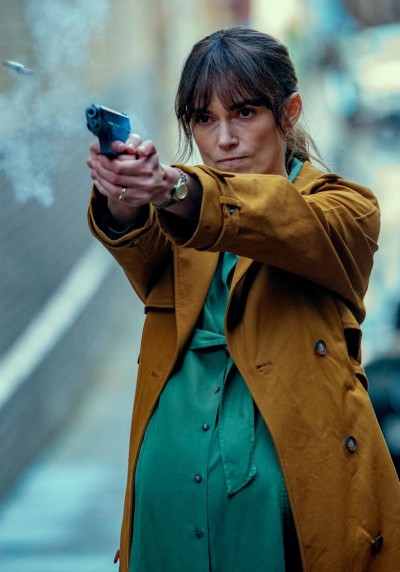 Reed calls in her top assassin, Sam (Whishaw), to protect Helen, fearing she might also be targeted. He has a history with Helen, dating back to before the birth of her children with Wallace. Things spiral out of control, involving the suspicious death of the Chinese ambassador, his missing daughter, a previous hit Sam botched, and Helen’s relentless pursuit of revenge, while trying to keep her family life intact. It’s a lot of balls to keep in the air, but the script does a fine job of avoiding confusion, with the wrap-up proving particularly admirable in its clarity. While I’ve read complaints about it being implausible, I have definitely seen worse. There’s room for both this, and more grounded spy shows like Slow Horses.
Reed calls in her top assassin, Sam (Whishaw), to protect Helen, fearing she might also be targeted. He has a history with Helen, dating back to before the birth of her children with Wallace. Things spiral out of control, involving the suspicious death of the Chinese ambassador, his missing daughter, a previous hit Sam botched, and Helen’s relentless pursuit of revenge, while trying to keep her family life intact. It’s a lot of balls to keep in the air, but the script does a fine job of avoiding confusion, with the wrap-up proving particularly admirable in its clarity. While I’ve read complaints about it being implausible, I have definitely seen worse. There’s room for both this, and more grounded spy shows like Slow Horses. Both director Morel and star Beckinsale should be familiar names around here. The former directed
Both director Morel and star Beckinsale should be familiar names around here. The former directed 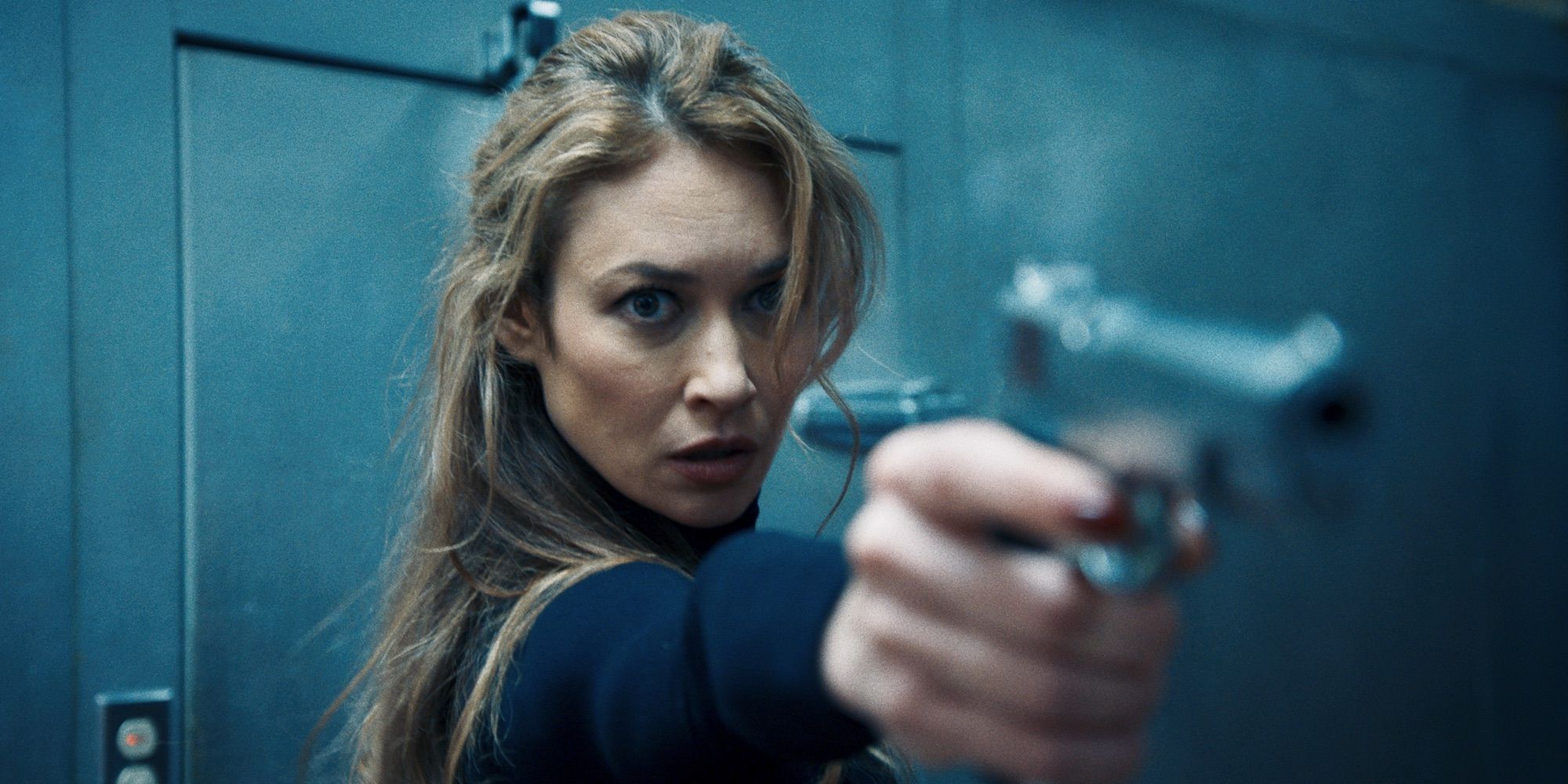 ★★★½
★★★½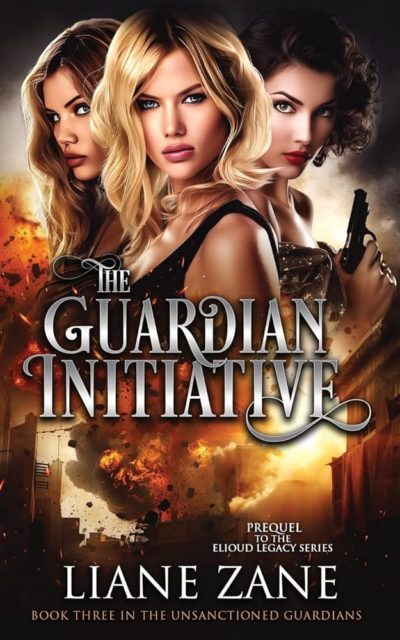 About a year has elapsed since the events of the previous book. CIA agent Olivia Markham landed on her feet sufficiently, after the events in that one, to preserve her career with the Company; but since then, at her request, she’s been moved to a desk job. For most of the interim, she’s been in charge of an agency safehouse in Montenegro, which fronts as a free clinic for the town’s numerous foreign refugees, run by an NGO that’s not aware of the CIA connection. (The clinic work is real; when she was recruited by the agency in the first book, Olivia was a college pre-med student, and she has EMT certification.) She’s also fallen in love with a French medical doctor at the local hospital; the two are living together, and will get engaged in the first chapter. But …she’s about to cross paths with an Islamic terrorist mastermind from the previous book. Meanwhile, Italian spy Stasia Fiore is still investigating the theft of a Predator drone from the Italian military; and Capt. Beta Czerna is soon to be approached by a desperate woman who needs help in rescuing her sister from the clutches of a Polish crime lord who’s into sex trafficking (among other villainous things). Circumstances are about to converge these plot strands, and bring all three ladies together for a violent, high-stakes thrill ride.
About a year has elapsed since the events of the previous book. CIA agent Olivia Markham landed on her feet sufficiently, after the events in that one, to preserve her career with the Company; but since then, at her request, she’s been moved to a desk job. For most of the interim, she’s been in charge of an agency safehouse in Montenegro, which fronts as a free clinic for the town’s numerous foreign refugees, run by an NGO that’s not aware of the CIA connection. (The clinic work is real; when she was recruited by the agency in the first book, Olivia was a college pre-med student, and she has EMT certification.) She’s also fallen in love with a French medical doctor at the local hospital; the two are living together, and will get engaged in the first chapter. But …she’s about to cross paths with an Islamic terrorist mastermind from the previous book. Meanwhile, Italian spy Stasia Fiore is still investigating the theft of a Predator drone from the Italian military; and Capt. Beta Czerna is soon to be approached by a desperate woman who needs help in rescuing her sister from the clutches of a Polish crime lord who’s into sex trafficking (among other villainous things). Circumstances are about to converge these plot strands, and bring all three ladies together for a violent, high-stakes thrill ride.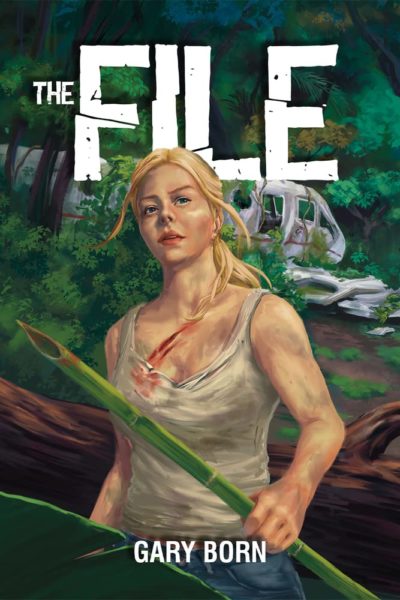 Not many novels come with a ringing endorsement from a former director of the CIA, but Gina Haspel calls this “A thoroughly enjoyable, engrossing thriller.” Argue with her, and she’ll send you an exploding cigar, or something. While it certainly isn’t bad, the rating above reflects its likely moderate appeal for readers here. A general audience might be more impressed, especially with regard to the second half, where the heroine becomes more of a passenger. Things begin at the very end of World War II with a flight out of Berlin carrying documents intended to secure the future of the Reich. It doesn’t reach its destination, crashing in the depths of the African jungle.
Not many novels come with a ringing endorsement from a former director of the CIA, but Gina Haspel calls this “A thoroughly enjoyable, engrossing thriller.” Argue with her, and she’ll send you an exploding cigar, or something. While it certainly isn’t bad, the rating above reflects its likely moderate appeal for readers here. A general audience might be more impressed, especially with regard to the second half, where the heroine becomes more of a passenger. Things begin at the very end of World War II with a flight out of Berlin carrying documents intended to secure the future of the Reich. It doesn’t reach its destination, crashing in the depths of the African jungle. That trait got her in trouble on her latest mission. It wasn’t supposed to be a hit; she was simply posing as the glamorous mistress of a drug dealer, delivering money for him to a Middle Eastern crime boss. But (as we learn along with her, at the debriefing in the first chapter) her meeting was compromised by an unknown leak in the CIA, who’d tipped the bad guys off as to who she was. They’d decided to test the tip by setting up a situation where she’d have to act to try to rescue a 12-year-old sex trafficking victim, figuring that she could then easily be dealt with, since she’d come unarmed. Unhappily for them, Fortune’s quite adept at improvising a weapon when she has to; though she doesn’t care much for high heels, she dispatched the head honcho with a stiletto heel on the shoes she was wearing, and got away clean, presumably with the 12-year-old. (We learn about this only in a terse second-hand report; I’d have loved to read it in real time!) Now, the deceased’s brother Ahmad, also a big-time crime lord, has put her picture all over the Dark Web, with a million-dollar price on her head (ten million, if she can be delivered to him alive to be tortured).
That trait got her in trouble on her latest mission. It wasn’t supposed to be a hit; she was simply posing as the glamorous mistress of a drug dealer, delivering money for him to a Middle Eastern crime boss. But (as we learn along with her, at the debriefing in the first chapter) her meeting was compromised by an unknown leak in the CIA, who’d tipped the bad guys off as to who she was. They’d decided to test the tip by setting up a situation where she’d have to act to try to rescue a 12-year-old sex trafficking victim, figuring that she could then easily be dealt with, since she’d come unarmed. Unhappily for them, Fortune’s quite adept at improvising a weapon when she has to; though she doesn’t care much for high heels, she dispatched the head honcho with a stiletto heel on the shoes she was wearing, and got away clean, presumably with the 12-year-old. (We learn about this only in a terse second-hand report; I’d have loved to read it in real time!) Now, the deceased’s brother Ahmad, also a big-time crime lord, has put her picture all over the Dark Web, with a million-dollar price on her head (ten million, if she can be delivered to him alive to be tortured). It’s often forgotten that America didn’t join World War II until almost three years after it started. In the early days, there was a strong isolationist movement, which saw the conflict as other countries’ problems, from people like aviator Charles Lindbergh and broad groups like the America First Committee. Indeed, there was a surprising amount of support for the Nazi regime: in February 1939, a rally at Madison Square Gardens drew twenty thousand people, and even after the war started in Europe, there was significant activity attempting to keep America out. It’s in this period, between the start of the war and the bombing of Pearl Harbor, that the story told here takes place.
It’s often forgotten that America didn’t join World War II until almost three years after it started. In the early days, there was a strong isolationist movement, which saw the conflict as other countries’ problems, from people like aviator Charles Lindbergh and broad groups like the America First Committee. Indeed, there was a surprising amount of support for the Nazi regime: in February 1939, a rally at Madison Square Gardens drew twenty thousand people, and even after the war started in Europe, there was significant activity attempting to keep America out. It’s in this period, between the start of the war and the bombing of Pearl Harbor, that the story told here takes place.